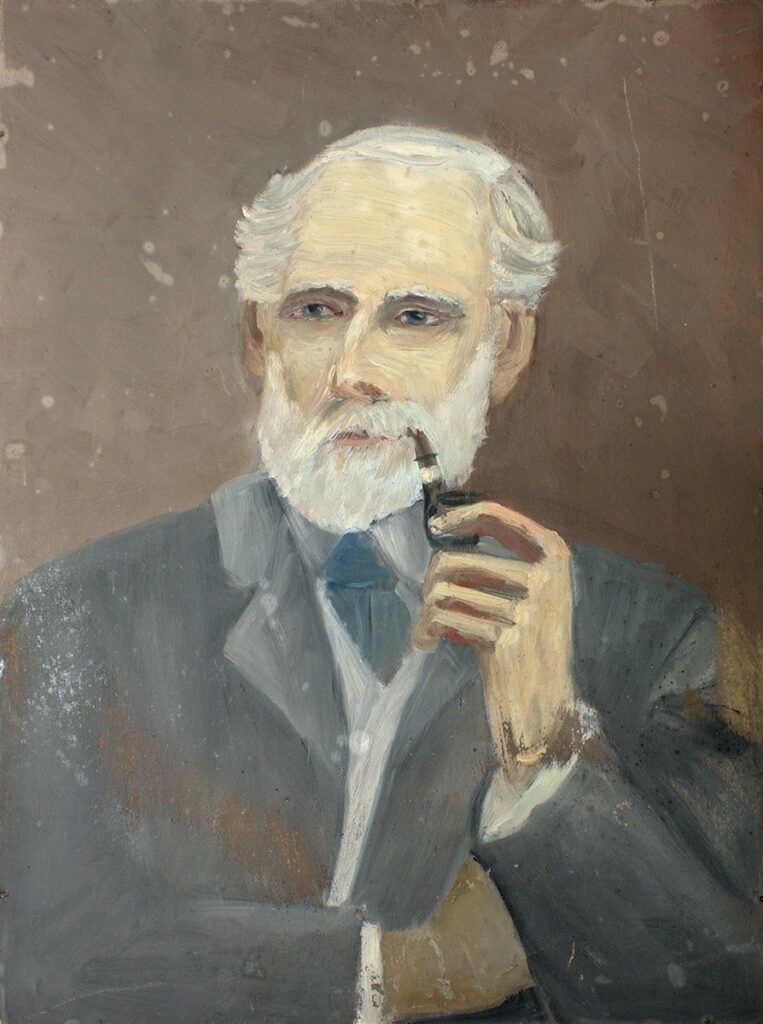Phoebe Watson: Poet and Writer
Phoebe’s literary talents were evident in her written correspondence and to the people she met. She was known to create “poetry as well as prose”[1], was described as having a “fertile, keen and cultured mind”[2], and expressed her many interests on paper. Phoebe may have been influenced by her father’s passion for poetry, as he was known to have “recited poems on platforms”[3] and had a fondness for literature. Unfortunately, few of her completed literary works have been located or have been lost to time.
A description of Phoebe’s talents based on correspondence between her close friend and author, Jenny Pincock, suggests that Phoebe was very talented but lacked confidence in her abilities:
What an exaggerated idea you have of me and my capabilities, you are so overflowing with love that you endow others with the same spirit…. [regarding a piece of Phoebe’s written work requested by Jenny] what if I were to read it again, [it may be] not worth sending to you for you have exalted me to a height I can never attain.[4]
There is no evidence Phoebe ever published her work professionally, and her apprehension in her abilities may have been a factor. Despite this, Phoebe wrote extensively for herself, as seen in drafts and essays on a variety of topics she felt passionately about.
Poems
An entry in a green ledger stored at the Homer Watson House & Gallery Archives contains examples of Phoebe’s poetry and prose, including this poem written around 1901-1902[5].
As the first gleam of the morning
softly lights my window pane
There I know that thought and duty
Call me to their rank again
There I live and think of beauty
Created by the morning dew
Then I lie and think of duty
To be done by me and you
Then I think the thoughts of kindness
And the thoughts of nobler things
But alas for thought of kindness
and alas for thoughts of good
For the light has stolen the birthright
Of the true good thoughts and the true good
And has left the sordid center
Of the thought that can be nought
Thought for merchandise and money
Thought for gain of pelf and self
Must get up half past eight[6]
At the time Phoebe wrote this poem she was in the process of moving from Doon and beginning her career and business in Galt. She lived with her mother in Galt for several years before Susan’s passing, and Phoebe’s reference to “duty” may have been about her role as caretaker.
Another poem by Phoebe was included as part of an invitation to one of her many parties held at Doon. It demonstrates an example of Phoebe’s humour and playfulness, and the concept of the party itself shows her resourceful thriftiness during the Great Depression.
In Miss Watson’s Gallery, a party there is going to be
On Thursday night, please come at eight, and make sure you are not late.
The times are hard as this depression, has put our clothes out of fashion.
So dress yourself in clothes you know, were worn a good many years ago.
A prize is offered to the one, whose dress is oldest or most fun.
It may be only homespun weave, or a dainty leaf as worn by Eve.
A crinoline or hoops would do; a basque, or middy blouse of blue.
Or if you’re really in a hustle, fit your oldest skirt o’er a bustle.
Parties always onward go; but this we trust you’ll not find slow.
For a change that you will surely see; this party all will backward be.[7]
Phoebe also wrote poetry inspired by Rudyard Kipling, as seen in her poem titled With Apologies to Kipling. In the poem, Phoebe criticizes Kipling’s love for smoking and shows her disdain for the habit, particularly amongst young people.
When the oldest pipes are useless,
And the stems are broken and worn,
And the youngest smoker yet toothless,
And still plays on his tin horn.
We can rest from labors that are fruitless
Of warnings of future pain,
If they are even caught at it,
That is caught smoking again.[8]
This is likely a response to Kipling’s poem Tobacco, which is about the poet’s fondness for smoking and regrets in not starting earlier in his youth. Anti-smoking stances were not particularly widespread during Phoebe’s lifetime, as by the 1940s “smoking had become the norm for both men and women in the United States – and a majority of physicians smoked”.[9] Despite the prevalence of smoking in her culture, Phoebe was likely part of the “rising public anxiety”[10] on the habit’s health impact as research emerged on its effects.
[1] “Sister Recalls Colorful Career of Homer Watson”, 1940.
[2] Frank Page, Homer Watson: Artist and Man (Kitchener: Commercial Printing Company, 1939), 65
[3] Jane Van Every, With Faith, Ignorance, and Delight (Aylesbury: The Homer Watson Trust, 1967), 11
[4] Letter from Phoebe Watson to Jenny Pincock, 2 September 1942, Maines Pincock Family fond SCA94, University of Waterloo Archives and Special Collections, Waterloo.
[5] According to a hand-written annotation next to the poem.
[6] Green Ledger, 1857-1943, Homer Watson House & Gallery Archives, Kitchener.
[7] Tweedsmuir History – Doon And Blair, [Scrapbook, 1984] Kitchener Public Library, Grace Schmidt Room, Kitchener.
[8] Phoebe Watson Letters and Drafts, nd., Homer Watson House & Gallery Archives, Kitchener.
[9] Martha Gardner and Allan Brandt, “The Doctor’s Choice is America’s Choice: The Physician in US Cigarette Advertisements 1930-1953”, American Journal of Public Health 96, no.2 (February 2006): 222
[10] Ibid.



